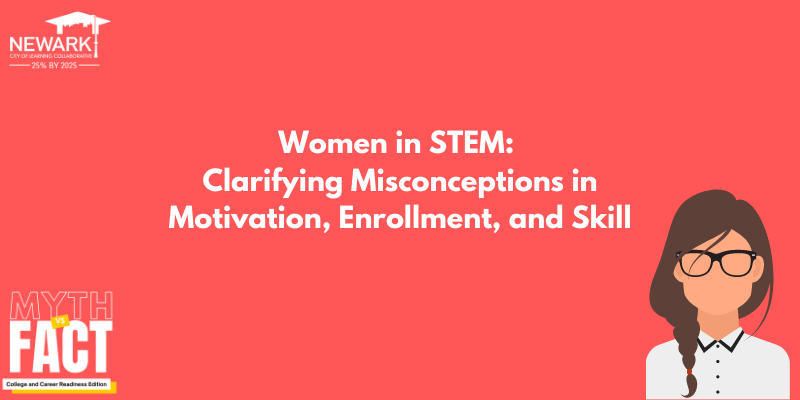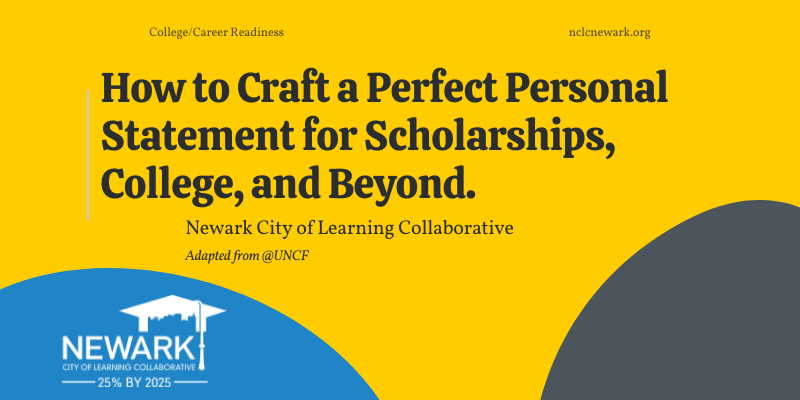
by Nasir Ismail | Mar 4, 2022 | Blog, Myth vs. Fact, Resources
Understanding Equal Opportunity for Women
Historical attitudes in the United States have unfortunately served to spread false gender stereotypes. Gender stereotypes negatively impact the opportunities of our country’s women. These attitudes lead people to believe that women can not accomplish the same things that men can–and that is simply not true.
The modern exploration of gender expression has been restructuring the social attitudes that limited women’s lives for generations. Attitudes claiming that “women aren’t as smart as men,” or anything along the lines of women being unequal to men, are entirely inaccurate. They stem from outdated, prejudiced social norms that male-dominant (patriarchal) societies carried through history.
Children as young as six years old tend to show signs of internalized stereotypes. That means: a six-year-old girl might already believe, for example, that she has to be a nurse because society made her believe only boys can be doctors. This only limits the child’s potential!
Myth vs. Fact
A contemporary stereotype that limits opportunities for Women in the US is the misguided belief that women aren’t as good as men in STEM fields. Science, Technology, Engineering, and Math are the component fields of study for these disciplines. The following examples will serve to show why that stereotype is not true.
People use backwards reasoning to justify attitudes against women. For example, the myth, “there are no women working in STEM” is a meritless claim.
More than 50% of researchers in Bulgaria, Latvia, and Lithuania, and above 40% of researchers in Latin America and the Caribbean are women! This is more evidence to show that many stereotypes involving women are unfounded claims.
People think men are simply better, perhaps by nature, than women in studying and understanding Science and Math. Also, recent studies show that girls often score as well or better than young boys on public school science and math tests.
People also believe the absurd viewpoint that women might not be as interested in the fields as men are, and this serves to gaslight women. Women and men are both extremely capable categories of humans, with about the exact same potentials in life. Society, however, has expressed biases–implicit and explicit–that can make women believe they are less capable. Due to classroom gender bias, teachers tend to put more faith in boys than they do in girls, especially in STEM subjects. Parents also put more pressure on sons than they do daughters to study STEM fields. So it is certainly not that women are less capable, it’s just that some groups of people have the misguided notion that women are lesser, and due to their influence, some people listen and perpetuate these falsehoods.
Conclusion
Shifting the societal narrative about equal opportunity can assist in building confidence in younger girls, so that from youth, they will never have to doubt themselves. Furthermore, they can build the resilience to never regard the false claims of backward-thinkers who want to limit their growth.
Also important to note is that not only men perpetuate these stereotypes. Women do too, and oftentimes nobody realizes that they spread these stereotypes. This shows how many of these attitudes come from implicit biases. Society has evolved in a way that economic policy dictates culture and indoctrinates everyone into the same system of beliefs and implicit attitudes, which is why people can self-discriminate and hold cultural biases.

by Nasir Ismail | Feb 17, 2022 | Blog, Myth vs. Fact, Resources
There is so much stress involved in when to attend college. Society sometimes makes it seem like if you do not attend college directly after high school, then you missed your opportunity to go at all. This cannot be further from the truth!
Debunking the Myths
Sometimes, people simply are not prepared to make a multi-year commitment, especially at the ages of 17 to 18 years old, which is when most young adults begin to apply for college. And in other cases, perhaps life gets in the way. Regardless, there is so much pressure surrounding what to study, what profession your major might result in, and ensuring that you enjoy your college experience.
More commonly than not, people will misjudge themselves at these young ages, and may even end up changing their major multiple times, or simply taking longer than expected to finish their chosen program of study.
The more time someone spends away from an academic environment, the harder it might be to reacclimate to that environment. There are, however, so many benefits to having real-world, real-life experience when it comes to education.
The Facts
It’s certainly true, going back to college or enrolling as an adult might be challenging… But luckily, you’re far from being alone. Recent reports have shown that almost 40% of adults over the age of 22 are still students. Don’t let your age discourage you!
Furthermore, studies have shown that older adults have more patience, problem-solving skills, and motivation than younger adult students, due to a higher amount of life experience. Several adults find the difficulty of college to decrease as they get older. This also serves as a bonus for employers after college who see that you may already have professional experience in another field. So not only will you have a more interesting story, but you might even be able to get paid more or land a better job for it!
So if you’re an adult who may have missed out on your initial opportunity to go to college as a traditional student, or you’re a high school student who may not be ready to commit years to studying and learning, it’s never too late to apply and enroll in a program of your interest!

by Nasir Ismail | Feb 17, 2022 | Blog, Myth vs. Fact, Resources
Often after high school or the completion of a GED, former students might find themselves unsure about their career plans. The societal pressure to attend a four-year bachelor’s program, in a time where several workplace environments demand certain post-secondary credentials, can leave students lost when considering a career path. While colleges may provide you exposure to new ideas, paths, and schools of thought, if you believe your career won’t require a four-year degree, then pursue a credential in something else!
Finding What’s Right For You
Several programs exist for the development of your trade skills and hands-on work, but not many people take advantage of these. For example, if you love to cut or style hair, it would be wise to enroll in a barber program to obtain licensure, rather than a bachelor’s program in an unrelated field. That way, you can gain the credentials/license you’ll need to follow your passion and level-up your career! As you will see, the benefits and the reward of going to a two-year trade school program are real, applicable, and sure to leave you with a job! How come, though, people attach a stigma to this kind of education?
Misconceptions
A common myth states that trade school isn’t worth the time or money. While usually only two years long, and for a fraction of the cost of a bachelor’s degree, this claim can not be more wrong! Although, it is true that trade school may not be the right fit for everyone. Generally, professions in the trades require more manual, skilled labor, and can be physically demanding. Professions include carpentry, electrician, plumber, mason, painter, construction worker, welder, and more!
The Facts
Although, there is real value in two-year degrees, credentials, and certificates! The average entry-level NJ Trade School Graduate earns $57,000 after they complete their two-year degree program. This is around the same amount as entry-level Bachelor’s Degree holders earn after four years of school! New Jersey has over 120 trade schools to choose from throughout the state, depending on your location and career preferences, so it shouldn’t be a hassle to find the right program to get you started.
Why You Should Consider Trade School
Trade schools have the unique ability to teach you hands-on, real-world, immediately-applicable skills that will get you employed the second you start looking for work! So for a fraction of the cost, and for half the time that it takes to get a bachelor’s degree, Trade school offers several amazing, competitive benefits.

by Nasir Ismail | Feb 15, 2022 | Blog, Resources
In general, writing about yourself can be a bit difficult. Trying to persuade your audience into believing you’re the best candidate for a position might seem especially daunting. Keeping just a few pointers in mind, learn how you can breeze through your personal statement to convince any reader why you’re the right candidate for the scholarship, job, or admission of your preference!
Choosing a Topic
Like any writing task, the most common part during which people find themselves stuck is simply when deciding on what to write about. To make it easier, some great topics to write about include: Career interests, Overcoming challenges, Community Service, Leadership, and Perseverance.
Use these to inspire how you decide to tell your story. Honesty is compelling. Before choosing a topic, ask yourself the question, “why do I deserve this,” and be sincere in your response. It’s all about how you present yourself.
Questions to Answer While Writing Your Essay
The reader of your essay wants to know why you want to pursue your studies in the major, career, or field of your choice. Questions to answer include: What have been your life’s biggest inspirations and influences thus far? How do these affect the way you see the world? When did you learn about your passion, and what experience do you have with it, if any? What personal qualities about you will improve your chances of success in your anticipated career, field, or major? For any example, always try to offer proof, and apply how your experience relates not only to the outside world, but towards your academic interests as well. Admissions counselors want to make sure that you really want to go to their school.
Telling Your Story
Here are some general guidelines to follow as a framework for your essay:
- Explain what this opportunity means to you.
- Express your interest and motivation overtly.
- Describe how you spend your free time, your hobbies, and your achievements.
- Identify your long-term goals (personal, educational, career).
- Predict how your education will align with your future goals in great detail.
- Make sure your career goals align with the industry you want to work in.
Proofreading
Have a few sets of eyes read over your essay, and make sure that it is coherent, cohesive, and free of any grammatical errors.
Representing yourself through your writing is one of the most important skills that a person can utilize and leverage to make the most of their opportunities. Following these four steps, you can elevate your personal statement to the next level! These strategies will help you ensure that your value never goes overlooked!
Adapted from United Negro College Fund
For additional resources, please visit: www.uncf.org/scholarships

by Nasir Ismail | Feb 10, 2022 | Blog, Myth vs. Fact, Resources
Got some bad grades from early on in high school? Worried that they might affect your chances of getting into college? While grades certainly reflect some aspects of your capability as a student, they’re not all that matters. Some people might have strengths in areas others will have weaknesses. It’s really important to know your own strengths and use them to your best advantage.
People stress about grades, but truthfully, if you are not the strongest student, there are still so many qualities that a college admissions office will see in you.
Myths
A common misconception is that if your grades are not where you want them to be, you won’t be accepted into any college! People might have told you things like:
“If your grades suffer at the start of high school, it will ruin your chances of getting into college,” or “your grades from 9th grade til 11th grade will determine your college acceptance.” Sometimes they will go so far as to say “you need perfect grades to get into college.”
It’s tough to know what to expect from college before having been there. Claims like the one mentioned above can’t be further from the truth! Such claims only help to discourage people from pursuing their dreams!
Admissions offices understand the challenges that students may face with adapting to harder courses each year. Although, these counselors also recognize and really value progress.
The Facts
Improvement Matters: The fact of the matter is: admissions counselors look for upward trends and improvements over the course of your high school career. If you show improvement throughout the course of your high school career, then your chances of getting into college are already competitive! Supplement that with some average to above-average test scores for some extra leverage, and you will be well on your way.
Build Leadership Skills: Although, don’t be alarmed! Consideration is not only limited to tests and grades! Admissions counselors consider and weigh what kind of person you are, your lifestyle, the activities in which you participate, your honors, and your achievements. These can often be more telling than a student transcript. And if a teacher with whom you share a good relationship can attest to this in a Letter of Recommendation, that will only boost your odds even more.
So, Do Grades Matter?
The bottom line: grades do have weight, but they are not a golden ticket to college. Not everyone realizes the importance of education early in high school. Not realizing this can make your GPA suffer, but that’s not a problem as long as you show consistent improvement afterward.
That being said, being a good candidate for college or university is less about your actual GPA than it is about your improvement and development of skills over time.
Colleges want to see that you want to go; that you are fully motivated. If you have good grades, then that’s great! Now it could be time to focus on an extracurricular activity. If your grades are not up to college standards, you still have time to make them better. Furthermore, you still have time to develop your skills to match those of someone who really wants to succeed in higher education.
Always remember, college is for the benefit of no one other than yourself. So no matter what kinds of grades you may have had, if they reflect an upward trend, and if you put some genuine effort into developing your personality through sports, clubs, or other extracurricular, documentable activities, then you can count on yourself to propel you to the next level.





